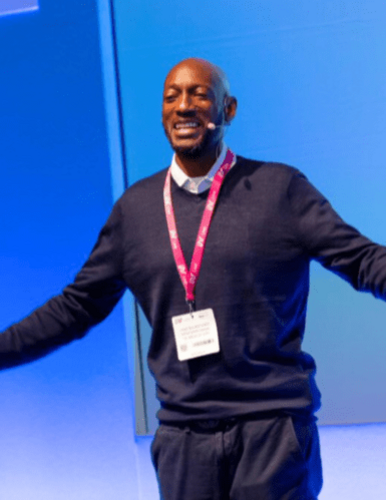
We recently partnered with Bridge of Hope Careers, an organisation that aims to bridge the gap between inclusive employers and an untapped talent pool facing barriers to employment as a result of disability, ethnicity, personal history, or a number of other factors.
We caught up with James and Chance to hear about the stories behind the organisation and the importance of reaching marginalised candidates.
James: I was born lucky: idyllic childhood, the best education money could buy and over two decades of upward career mobility. By 2008, I was an international executive with Diageo and living the ‘American Dream’. What could possibly go wrong?
It turns out, a lot. After a combination of life’s curve balls, torrid unemployment and previously undiagnosed bipolar disorder, I lost almost everything. White, male and very privileged, for the first time in my life I experienced 'barriers to employment'.
Starting again as a janitor and clawing my way up the corporate ladder, I was made redundant for a final time in 2018. It was at this point I had an epiphany moment and decided to leave the corporate world to try and change the world! From this, Bridge of Hope was born.
Chance: My early life is a contrast to James’; after losing my sister to cancer, I had a mental breakdown which led to heavy use of drugs and alcohol. Before I knew it, my life had spiralled out of control and I woke up one day, sat in a prison cell, alone, and with a prison term ahead of me.
I invested my time equally on University-level education, therapy to deal with childhood trauma, and personal development. I remember after almost four years in therapy, I sat at the end of my bed with tears of joy rolling uncontrollably down my face, because for the first time in my life I felt free.
I left that place a while ago with better mental health, hope, and determination. I have continued to live my life remarkably and with my renewed purpose, in the memory of my sister. Along this journey I was introduced to James. One thing about James is that he’s really good at spotting diamonds in the rough, and he made me realize that I was one of them. He became my mentor and brought me in on Bridge of Hope.
James: It became clear that there was a massive missing link, and hence the Bridge of Hope, to connect amazing untapped talent ready for a job and employers who are looking for more diverse talent. For example, a talent pool which is near and dear to my heart with bipolar, is the neurodiverse talent pool. Without stereotyping, I think everybody realizes that that the autistic group is unbelievably good at focus and attention to detail. If you’re recruiting for an organization looking for compliance officers or people on detailed operation roles, why are you not looking at the autistic talent pool?
Chance: We had a good look at it and thought it was fantastic that there was this wonderful bridge where marginalized and diverse candidates can get into employment. But we wanted it to be even better than that; we wanted the journey across that bridge to nourish the lives of the candidates going over, so we’ve got some incredible partners who help with providing qualifications and support with finances and wellbeing.
James: We are thrilled to be partnering with Venn Group to promote inclusive recruitment at scale. After all, the biggest game changer in life is a job.
